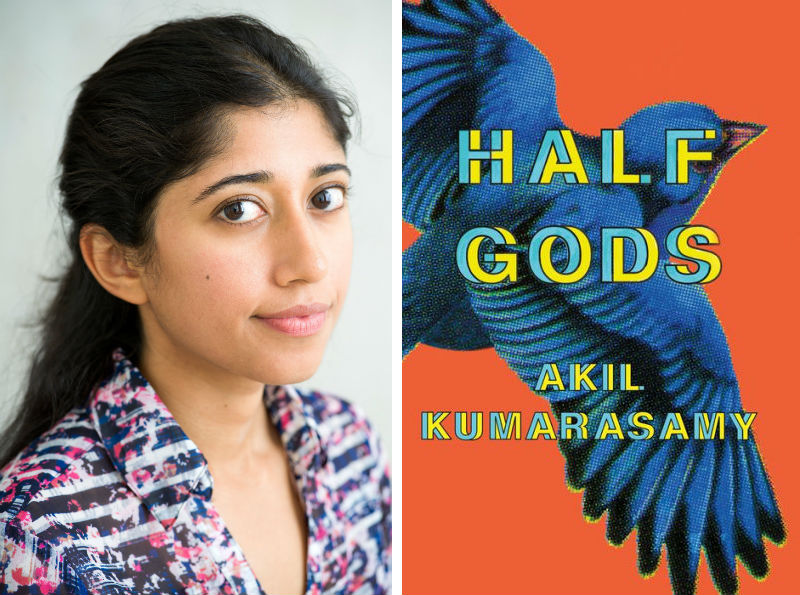Past, Tense: U-M grad Akil Kumarasamy's "Half Gods" is a masterful debut

“The past is never dead," wrote William Faulkner. "It's not even past.”
The past is always present and rarely quiet in Akil Kumarasamy’s masterful debut novel, Half Gods.
The Sri Lankan civil war lasted more than 25 years, officially ending in 2009. The 10 interlinked stories in Half Gods tell the story of Nalini and her family, for whom the war is neither dead nor past. After the slaughter of her mother and brothers, Nalini and her father escape to New Jersey with their grief following right along with them. The stories travel through narrators with some of the focus on Nalini as a child and then as a grown woman with children of her own. Other stories include a man in Sri Lanka looking for a missing child, a butcher from Botswana transplanted to New Jersey who falls in love with Nalini all told through short stories.
The material dictated the decision to structure the novel as a collection of linked stories as opposed to a tradition novel, Kumarasamy says: “I was dealing with the messiness of borders and characters whose lives were fractured by violence. I knew this would be a non-linear story with many voices. While the short story form gives each piece a tight structure, the book has a novelistic scope. The cover of the book doesn’t say novel or stories and I like the idea of a reader entering the book without any preconceptions about the narrative.”
Kumarasamy stressed the deep interconnection of the stories. She wants readers to pay close attention, saying, “Even the cat in the first story reappears again.”
Half Gods spans both place and time as the reader visits not just New Jersey but also a war-torn village, a tea plantation in Ceylon (the British colonial name that was renamed Sri Lanka in 1972), as well as the future, the past, the present. Kumarasamy says that while she hasn’t been to every place in the book, “I was playing around with the idea of geography and the fictitious nature of borders. The characters in the book are often displaced, questioning the idea of a homeland. The two brothers, who are named after demigods, are born in New Jersey. Their mother is a Tamil refugee from Sri Lanka and their father is Punjabi American. I wanted to explore the messiness of identities, whether that is nationality, religion, or sexuality.”
Kumarasamy hopes readers pay attention to the history of the Sri Lankan Civil War as well as how it affects today. “Most of the world is still dealing with the imperial fallout of having land carved and cobbled together, resources stripped, foreign militaries deployed and indigenous populations displaced and decimated. Nigeria, India, Sri Lanka are examples of colonial constructs. These countries didn’t exist; they are a colonial dream.”
The Sri Lankan Civil War remains an issue that haunts the characters in Kumarasamy’s book but is unfamiliar to some American readers. Anyone looking to learn more about this devastating war could learn a lot from Half Gods. Faulkner warned us -- the past is never dead. And people should never forget.
Patti F. Smith is a special education teacher and writer who lives in Ann Arbor with her husband.
Akil Kumarasamy lives in New Jersey and received her received her MFA from the University of Michigan. She reads from "Half Gods" at Literati on Monday, September 17 at 7 pm.


































